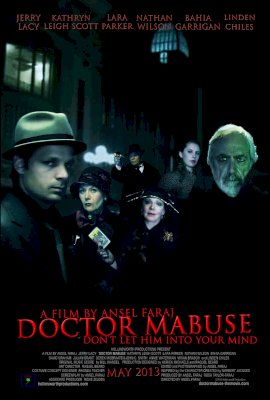"Dr. Mabuse: Etiopomar" (2022), also known as "The Return of Dr. Mabuse," resurrects the infamous criminal mastermind, Dr. Mabuse, from his apparent exile, as he sets his sights on unleashing a new wave of terror upon the world. Imagine the chilling return of this iconic villain, his intellect and malevolence undiminished, as he weaves intricate schemes and manipulates events from the shadows. Standing against this formidable force is young Inspector Carl Lohemann, a determined and resourceful investigator who becomes the sole hope of stopping Mabuse's sinister plans before they come to fruition. This thriller pits the cunning of a seasoned criminal genius against the tenacity of a rising detective in a battle of wits and wills, with the fate of innocent lives hanging in the balance.

Doctor Mabuse (2013), directed by Ansel Faraj, is a bold attempt to resurrect one of cinema’s most enigmatic villains, originally crafted by Fritz Lang. While the film pays homage to the stylistic roots of German Expressionism and early 20th-century pulp fiction, it operates with clear limitations in budget and execution. The script leans heavily into theatrical dialogue and a deliberately archaic tone, which may resonate with fans of vintage noir but risks alienating viewers expecting modern pacing or production quality. Visually, the film strives for atmosphere, using shadows and practical effects to evoke a surreal, almost stage-like quality. However, its ambition sometimes clashes with its resources—performances range from committed to uneven, and the editing occasionally undermines narrative clarity. Still, for viewers interested in experimental homage or the legacy of cinematic villains, Doctor Mabuse offers an earnest, if flawed, contribution to a legendary canon.